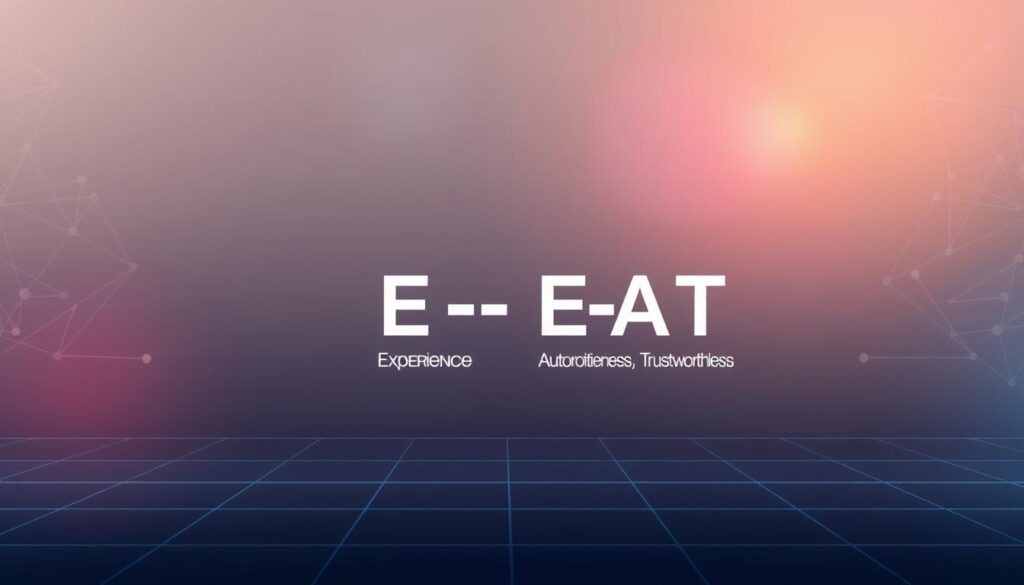The rise of AI in search interfaces is changing how we use digital info. It’s key for tech experts to get this, as it brings new trends and insights. With AI, finding and seeing information online gets better.
Looking into these changes helps experts plan better in our digital world. This knowledge is crucial for staying ahead in today’s fast-paced tech scene.
Key Takeaways
- AI search interfaces are transforming user interactions with digital data.
- Understanding search technology trends is vital for professionals.
- AI enhances information retrieval capabilities across platforms.
- Content visibility is significantly impacted by evolving AI search tools.
- Staying abreast of digital transformation insights is crucial for competitive edge.
Understanding the Shift in Search Paradigms

The way we search has changed a lot because of AI. Old search methods were all about keywords. This made finding what you needed hard and frustrating.
Now, search engines like Google use AI to understand what you really mean. They look at your search in a deeper way. This means you get answers that are more relevant and make sense in the context of your search.
Google’s use of NLP and machine learning has been a big help. These tools help search engines understand your questions better. This leads to more accurate and helpful results for you.
Users now expect answers that really meet their needs. This means content creators need to focus on making things that are useful and show they know what they’re talking about.
| Traditional Search Method | AI-Driven Search Method |
|---|---|
| Keyword-focused queries | User intent and contextual understanding |
| Numerous irrelevant results | Curated, precise answers |
| Limited interpretation of queries | Dynamic query interpretation through machine learning |
| User frustration during searches | Enhanced user satisfaction and engagement |
The Role of AI in Redefining SEO

AI technologies are changing SEO in big ways. Old SEO methods focused on keywords, backlinks, and traffic. But AI now looks at deeper user insights and what they really want.
Search engines use smart algorithms to understand content better. This means they care more about content visibility and the quality of what’s shared. Brands need to update their strategies to meet AI’s standards for credibility and quality content.
Adjusting to these changes means more than just getting people to visit your site. It’s about meeting AI’s high standards. For businesses to stay ahead, they must adopt new content strategies. This ensures their content not only reaches people but also connects with them.
New tools help businesses create personalized experiences. This means improving user engagement is a key goal. Companies that keep improving their SEO will find new ways to grow in the digital world.
AI Search Interface Evolution: Key Features

The evolution of AI search interfaces brings new AI search features to improve how we interact with search engines. One key feature is direct answer provisioning. This means users get quick, accurate answers without looking through many links. This change is thanks to tools like Google’s AI Overviews and generative AI models, making a big difference in search results processing.
AI algorithms now mix information from many sources to give users short, relevant answers. This makes users happier and saves them time. It shows a big push for user experience enhancement.
AI systems can now gather and summarize information, changing how we interact with them. Tools like ChatGPT and Bing make it easy to ask complex questions and get detailed answers. This makes searching more personal but also raises the bar for content creators. They must now make content that’s clear and trustworthy for AI to pick up.
| Feature | Description | Impact on User Experience |
|---|---|---|
| Direct Answer Provisioning | Immediate responses to queries without navigating through multiple links | Reduces search time and enhances satisfaction |
| Synthesized Information Presentation | Compilation of data from various sources into a coherent answer | Provides holistic insights and deeper understanding |
| Contextual Relevance | Understanding user intent to deliver tailored search results | Improves content visibility and relevance for users |
To learn more about optimizing AI interactions with effective content strategies, explore the specific techniques available for content creators in this evolving landscape.
Zero-Click Searches: Implications for Content Visibility

Zero-click searches are now a big part of how we search online. AI Overviews give us the info we need right on the search page. This means we don’t have to click on links to find what we’re looking for.
Studies show that over 58% of Google searches don’t need a click. This change might mean fewer visitors for websites that rely on clicks. Brands need to rethink their content strategy to stay relevant.
To adapt, brands should focus on making content that stands out. This content should work well with AI summaries. By doing this, businesses can stay in the game even if users don’t visit their sites directly. It’s all about creating content that meets user needs and provides context. For more tips, check out this link.
Emphasis on User Intent and Context

The digital world now focuses more on understanding what users want and need. Artificial intelligence helps in this by better understanding natural language. This means brands can create content that really meets user needs, making their content more relevant.
Brands need to move away from just using keywords. They should aim to answer users’ deeper questions and needs. This approach not only helps connect with users but also strengthens their position in the AI-driven search world. Brands that get the context right are likely to do better.
| User Intent Type | Description | Content Strategy Approach |
|---|---|---|
| Informational | Users seek knowledge or answers to specific questions. | Create detailed articles or FAQs that provide thorough insights. |
| Navigational | Users are looking for a specific website or page. | Optimize for branded keywords and ensure directory access. |
| Transactional | Users intend to make a purchase or complete a transaction. | Develop persuasive product pages with clear calls to action. |
| Commercial Investigation | Users compare options before making a decision. | Utilize comparison guides and product reviews to aid decision-making. |
Knowing about these user intent types helps brands improve their content. This leads to better engagement and loyalty. By providing the right information, businesses not only meet immediate needs but also build lasting relationships with customers.
The Impact of E-E-A-T on Content Ranking

The E-E-A-T framework is key in how search engines rank content. It stands for Experience, Expertise, Authoritativeness, and Trustworthiness. This framework helps search engines find the best content to show users. By following E-E-A-T, creators can boost their online authority.
Content that is deep and trustworthy gets ranked higher. To do well, creators need to focus on a few key areas:
- Experience: Sharing personal stories makes content more believable.
- Expertise: Showing off your knowledge in a field builds trust.
- Authoritativeness: Using credible sources and getting recognized by trusted sites increases your authority.
- Trustworthiness: Being open and honest with your information builds user trust.
Using high-quality sources makes your content more engaging and meets AI’s standards. Understanding the value of authority can help businesses rank better. This ensures their messages stand out in a crowded online world.
Content Creation Strategies for AI Search

Businesses need to adapt to the digital world by using AI-friendly content strategies. Generative Engine Optimization is key, focusing on content for AI systems. It makes content easy to understand for both search engines and users.
Creating well-structured content helps AI search engines find it. This means more chances for your content to be used in AI responses. Making content informative and relevant boosts its visibility and engagement.
Formatting content for AI is important. Use clear headings, bullet points, and a logical structure. This makes it easier for AI to understand and use your content. Adding schema markup helps AI understand your content better, leading to more citations.
Combining content optimization with user engagement helps brands become leaders in their fields. By using AI-friendly practices and improving their strategies, companies can stand out in the AI search world.
Technical Foundations for AI Search Optimization

Creating a strong technical base is key for better website performance in AI search optimization. Many AI tools have trouble with JavaScript, so using server-side rendering is crucial. This makes sure content is seen in AI search results.
The llms.txt file is a must for guiding AI crawlers. It helps them understand a site’s structure and content. Using this file well makes indexing better. Also, adding schema markup and semantic HTML makes sites more accessible.
Good technical SEO practices are still important. This includes optimizing URLs and meta descriptions. Descriptive URLs with keywords help AI find your site easier. Also, content that’s easy for AI to read improves performance.
Monitoring and Measuring AI Search Performance
Keeping an eye on AI search performance is key. It involves looking at both how well it works and how users interact with it. Unlike old metrics, new ones focus on how users engage with AI content.
Tracking how visible content is in search results is vital. It shows where content stands in AI systems. Looking at how often content is cited and attributed gives new insights.
Studying how users interact with AI summaries is important. It shows how well the content works. By checking these metrics often, companies can improve their strategies and see their digital impact.
The Future Trajectory of AI Search Interfaces
The future of AI search interfaces is all about personalization and dynamic interactions. Search engines will use advanced algorithms for better conversations with users. This change will make finding information easier, especially for complex questions.
AI bots will soon be part of our daily searches. This means brands need to update their content to meet new user needs. While traditional search engines will still be important, AI will lead in research and detailed info.
It’s key for businesses to make content for AI interfaces. New tech will change how we interact with search, offering more relevant answers. Keeping up with these changes will help businesses stay visible and relevant.
Understanding the future of AI search helps businesses prepare for changes in user interaction with search tech.
For more on how these trends meet today’s tools, check out AI tools changing conversational interfaces.
Conclusion
The AI search evolution is changing digital marketing and content creation a lot. It’s important for creators and marketers to get how this change works. They need to know about user intent, technical optimization, and E-E-A-T.
These things help them show up more in an AI world. Knowing about AI’s role in search is key for making good content plans.
Staying up-to-date with AI trends and tools is crucial. This helps keep content engaging and relevant as search changes. Using data to guide decisions helps creators and marketers adapt well.
Companies should stay open to AI’s growth for lasting success. For tips on adapting content strategies, check out this guide on AI tools. Being proactive in an always-changing digital world is essential for success.







